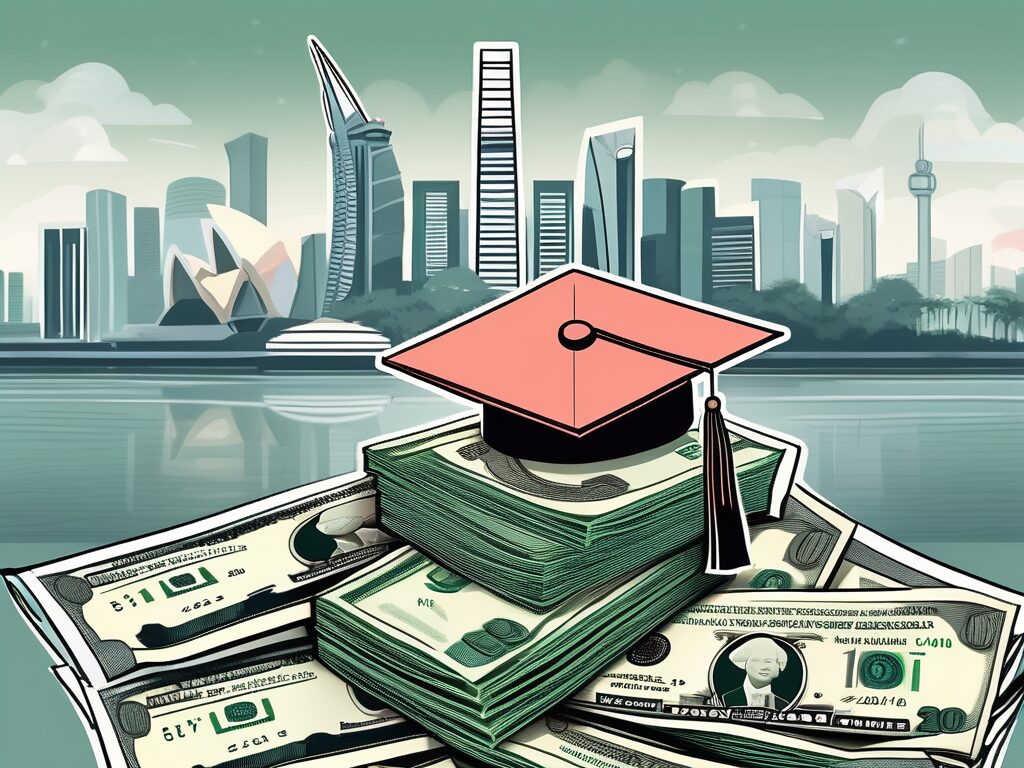In the ever-evolving educational landscape, a Master’s degree in Education has become a significant asset for teachers aiming to enhance their professional growth and development. This is particularly true in Singapore, a nation renowned for its high-quality education system. But what does this mean in terms of remuneration? Let’s delve into the average salary for teachers with a Master’s in Education in Singapore, exploring seven key facts that shed light on this topic.
1. The Basic Salary Range
The basic salary for teachers in Singapore varies significantly depending on the level of education, experience, and the type of school. On average, a teacher with a Master’s degree in Education can expect to earn between SGD 60,000 to SGD 100,000 annually. This range, however, is a broad one, and actual earnings can be influenced by a variety of factors which we will discuss further.
Compared to other professions in Singapore, teachers with a Master’s degree in Education tend to earn a competitive salary. For instance, the average salary for a software engineer in Singapore is around SGD 60,000, which is at the lower end of the teachers’ salary range.
2. Experience Matters
Experience plays a crucial role in determining a teacher’s salary in Singapore. Teachers with more years of experience in the field, especially those holding a Master’s degree, are likely to command a higher salary. This is because experienced teachers are often considered more skilled at managing classrooms, creating effective lesson plans, and handling administrative tasks.
For instance, a teacher with a Master’s degree and five years of experience may earn around SGD 70,000 annually, while a teacher with the same qualifications but ten years of experience could earn over SGD 90,000.
3. Type of School
The type of school where a teacher is employed also impacts their salary. In Singapore, teachers in international schools generally earn more than their counterparts in public schools. This is primarily due to the higher fees charged by international schools, which can afford to pay their staff more generously.
However, it’s worth noting that public schools in Singapore offer a host of benefits, including job security and a comprehensive pension plan, which can add significant value to the overall compensation package.
4. Specialisation
Teachers with a Master’s degree in a specialised area of education, such as Special Needs Education or Educational Leadership, often earn more than those with a general Master’s in Education. This is because specialised skills are in high demand and can command a premium in the job market.
For example, a Special Needs Educator with a Master’s degree might earn up to SGD 110,000 annually, reflecting the specialised skills and expertise required for this role.
5. Additional Roles
Teachers who take on additional roles within the school, such as heading a department or leading extracurricular activities, can expect a boost in their salary. These roles often come with added responsibilities and require additional time and effort, which is reflected in the compensation.
For instance, a teacher with a Master’s in Education who also heads the Mathematics department might earn an additional SGD 10,000 to SGD 15,000 per year.
6. Professional Development
In Singapore, there is a strong emphasis on professional development for teachers. Those who continually upgrade their skills and knowledge through professional development courses and workshops often see a positive impact on their salaries.
Moreover, the Ministry of Education in Singapore provides various scholarships and awards for teachers pursuing further studies, which can help offset the cost of a Master’s degree and add to the overall financial benefits.
7. Job Satisfaction and Non-Monetary Benefits
While salary is an important factor, it’s also worth considering the non-monetary benefits of being a teacher. Teachers often report high levels of job satisfaction, stemming from the opportunity to make a difference in students’ lives and contribute to society.
Additionally, the teaching profession offers a good work-life balance, with regular school holidays and a stable work schedule. These factors, while not directly contributing to the salary, add significant value to the overall compensation package and the appeal of a career in teaching.
In conclusion, while the average salary for teachers with a Master’s in Education in Singapore can vary based on numerous factors, it’s clear that this qualification can open doors to higher earnings and professional growth. Whether you’re a seasoned educator or considering a career in teaching, a Master’s degree in Education can be a valuable investment in your future.
Elevate Your Teaching Career with The IQTS at UWE
Are you inspired to take your teaching career to the next level after learning about the benefits of a Master’s in Education? The International Qualified Teacher Status (iQTS) Programme at UWE is your gateway to achieving global recognition and overcoming the common barriers faced by educators. With the iQTS, you can enhance your professional development, increase your chances of promotion by 45%, and potentially boost your salary by 30%. Join a vibrant community of professionals, gain a deep understanding of international curricula, and enjoy the flexibility of online study tailored for working teachers. Make Your Next Step towards a rewarding international teaching career with the iQTS programme.

